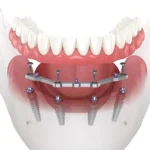Understanding the Causes and Treatment Options for Chronic Sinusitis
What is Chronic Sinusitis?
Chronic sinusitis is a persistent and frustrating condition affecting millions worldwide. Unlike acute sinusitis, which typically resolves within a few weeks, chronic sinusitis is characterized by inflammation and swelling of the sinuses that lasts for 12 weeks or longer. This prolonged inflammation can lead to uncomfortable symptoms, including nasal congestion, facial pain and pressure, headaches, and difficulty breathing through the nose.
The sinuses are a series of air-filled cavities located in the bones of the face, including the forehead, cheeks, and behind the nose. These cavities are lined with a thin layer of mucus-producing tissue, which helps trap and remove dirt, germs, and other particles from the air we breathe. When the sinuses become inflamed and blocked, the natural drainage of mucus is disrupted, leading to fluid accumulation and chronic sinusitis.
Chronic sinusitis is a complex condition that can significantly impact an individual’s quality of life. Its persistent symptoms, such as headaches, facial pain, and difficulty sleeping, can interfere with daily activities and negatively affect overall health and well-being. Understanding the underlying causes of chronic sinusitis is crucial in determining the most effective treatment approach and finding lasting relief.
Causes Of Chronic Sinusitis
The exact cause of chronic sinusitis is not always clear, as it can result from a combination of factors. However, several common underlying causes can contribute to the development and persistence of this condition.
According to a sinus doctor, one of the most common causes of chronic sinusitis is allergies. Allergic reactions to environmental triggers, such as pollen, dust mites, or mold, can lead to chronic inflammation and swelling of nasal and sinus passages. This inflammation can disrupt the normal drainage of mucus, leading to fluid accumulation and the development of chronic sinusitis.
Another common cause of chronic sinusitis is nasal polyps. Nasal polyps are small, noncancerous growths that can develop in the nasal passages or sinuses, often due to chronic inflammation. These growths can block the natural drainage of the sinuses, leading to chronic sinusitis.
Respiratory tract infections, such as the common cold or the flu, can also contribute to chronic sinusitis. These infections can cause inflammation and swelling in the nasal and sinus passages, leading to the accumulation of mucus and the persistence of symptoms. Sometimes, these infections can weaken the immune system, making an individual more susceptible to chronic sinus infections.
Structural abnormalities in the nasal or sinus passages, such as a deviated septum or narrow nasal passages, can also increase the risk of chronic sinusitis. These anatomical issues can impede the normal drainage of mucus, leading to fluid accumulation and chronic inflammation.
In some cases, chronic sinusitis may also result from a weakened immune system. Individuals with underlying health conditions, such as HIV/AIDS, diabetes, or certain autoimmune disorders, may be more susceptible to chronic sinus infections due to a compromised immune response.
Understanding the underlying causes of chronic sinusitis is essential in determining the most appropriate treatment approach. Individuals can find relief and improve their sinus health by identifying and addressing the specific factors contributing to the condition.
Symptoms Of Chronic Sinusitis
The symptoms of chronic sinusitis can be persistent and debilitating, significantly impacting an individual’s quality of life. The most common symptoms of this condition include:
- Nasal congestion: Persistent stuffiness and difficulty breathing through the nose, often accompanied by facial pressure or fullness.
- Facial pain and pressure: A dull ache or pressure around the eyes, cheeks, and forehead, often worsened by temperature or position changes.
- Headaches: Chronic sinus headaches can be severe and radiate from the face to the top of the head.
- Difficulty sleeping: Disrupted sleep due to nasal congestion, facial pain, or headaches, leading to daytime fatigue.
- Reduced sense of smell and taste: Inflammation may impair the ability to smell or taste.
- Cough and postnasal drip: A persistent cough and mucus dripping down the throat, causing discomfort.
- Ear pain or pressure: Pressure or pain in the ears due to inflammation affecting the Eustachian tubes.
These symptoms can greatly affect the quality of life, making timely medical intervention essential for relief and better sinus health.
Diagnosing Chronic Sinusitis
Diagnosing chronic sinusitis can be challenging due to symptoms that overlap with conditions like allergies or colds. The process begins with a detailed medical history and physical examination, during which the healthcare provider will ask about the duration and severity of symptoms and inspect the nasal passages using tools like an endoscope to detect inflammation or blockages.
To gain further insight, imaging tests such as a CT scan or MRI may be used to visualize sinus structures and identify any inflammation, swelling, or abnormalities like nasal polyps. A nasal endoscopy allows for a direct view of the nasal and sinus passages, helping pinpoint any underlying issues.
Additional tests, like allergy testing or mucus samples, may be needed to determine specific triggers or infections contributing to the condition. This combination of medical history, physical exams, and diagnostic imaging allows healthcare providers to confirm chronic sinusitis and create an effective treatment plan.
Treatment Options for Chronic Sinusitis
Chronic sinusitis treatment varies based on severity and causes, often requiring a combination of approaches. The first line of defense includes over-the-counter (OTC) medications to alleviate symptoms like nasal congestion, facial pain, and headaches. Common OTC treatments include:
- Decongestants: Such as pseudoephedrine, reduce congestion by shrinking nasal blood vessels.
- Antihistamines: Like cetirizine, to decrease inflammation, particularly in allergy-related sinusitis.
- Saline sprays/rinses: To flush out mucus and improve drainage.
If OTC remedies aren’t enough, doctors may prescribe:
- Corticosteroid nasal sprays: To reduce inflammation in the nasal passages.
- Oral antibiotics: If a bacterial infection is suspected.
- Oral/injectable corticosteroids: For severe inflammation and swelling.
Lifestyle changes, such as using a humidifier, avoiding irritants like smoke, and practicing good nasal hygiene with saline rinses, can also help manage chronic sinusitis.
For persistent cases, surgical options include:
- Endoscopic sinus surgery: To remove blockages like polyps.
- Balloon sinuplasty: To expand sinus passages.
- Septoplasty: To correct a deviated septum that may be causing sinus issues.
Treatment is tailored to the individual’s condition, and working closely with a healthcare provider ensures a comprehensive plan for lasting relief.
Medications for Chronic Sinusitis
Medications are vital for managing chronic sinusitis. They help relieve symptoms and target underlying causes. The choice of treatment depends on the severity and factors contributing to the condition.
Corticosteroid nasal sprays, such as fluticasone or triamcinolone, are often the first line of defense. They reduce inflammation and swelling in the nasal passages, easing symptoms like congestion, facial pain, and headaches. These sprays provide localized relief without the broader side effects linked to oral corticosteroids.
For sinusitis caused by a bacterial infection, oral antibiotics like amoxicillin or azithromycin may be prescribed to clear the infection and reduce inflammation. However, antibiotics are only effective against bacterial infections and won’t help in cases caused by allergies or structural issues.
In more severe cases, oral or injectable corticosteroids (e.g., prednisone) may be recommended for a stronger anti-inflammatory effect. However, these are typically used in the short term due to their higher risk of side effects.
Over-the-counter options like decongestants (pseudoephedrine) and antihistamines (cetirizine) can also help by reducing congestion and inflammation, while saline nasal sprays flush out mucus and promote drainage.
When using any medication for chronic sinusitis, it’s important to follow a healthcare provider’s guidance to avoid side effects. A tailored treatment plan can effectively address symptoms and improve long-term sinus health.
Lifestyle Changes to Manage Chronic Sinusitis
In addition to medications, lifestyle modifications can significantly help manage chronic sinusitis by reducing inflammation, promoting sinus drainage, and preventing flare-ups.
First, avoiding environmental triggers is crucial. Common culprits include allergens like pollen, dust mites, pet dander, and mold, which can inflame the nasal passages. Similarly, irritants such as cigarette smoke, strong scents, and dry air can worsen symptoms. Using a humidifier and avoiding these triggers can help prevent flare-ups and promote sinus health.
Additionally, adopting certain habits can further alleviate symptoms. Regular nasal irrigation with saline solutions helps flush out mucus and prevent infection. Staying hydrated keeps mucus thin for easier drainage, and warm compresses can relieve facial pain and pressure. Stress management techniques, like yoga or meditation, can also improve symptoms by reducing stress-induced inflammation. Lastly, some may benefit from dietary changes, such as incorporating anti-inflammatory ingredients like turmeric or ginger.
Individuals can better manage chronic sinusitis by integrating these lifestyle changes alongside medical treatments and improving overall sinus health. Working with a healthcare provider ensures these modifications align with the condition’s underlying causes.


















